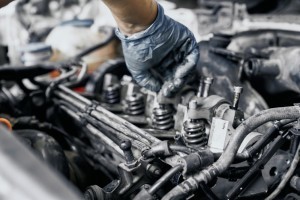INDEPENDENT NATIONAL DEALER
Nationwide-USA
San Diego, CA
(800) 653-0323
OUR BLOG
Petrol and diesel engines have distinct characteristics that make them suitable for different applications. Learn to differentiate petrol vs diesel engines with this post by Synthetic Oil Inc. in San Diego.

Petrol and diesel engines are two widely used types of internal combustion engines that power vehicles and machinery. While both engines serve the same purpose of converting fuel into mechanical energy, there are significant differences between them. In this post, we will explore these differences and help you understand the advantages and considerations ofpetrol vs diesel engines.
Need synthetic oil for your petrol or diesel engine? Call Synthetic Oil Inc. in San Diego at (800) 653-0323 or visit AMSOIL's online store to order the best one for it.
Petrol Vs. Diesel Engines
Fuel Composition
The primary difference between petrol and diesel engines lies in the type of fuel they use. Petrol engines, also known as gasoline engines, require petrol as their fuel source. Petrol is a volatile fuel composed primarily of hydrocarbons derived from crude oil. Diesel engines, on the other hand, utilize diesel fuel, which is a heavier and less volatile fuel than petrol. Diesel fuel contains higher energy content per unit volume than petrol, contributing to the greater fuel efficiency of diesel engines.
Ignition Process
Petrol and diesel engines differ in their ignition processes. Petrol engines use spark ignition, where a spark plug ignites a fuel-air mixture in the combustion chamber. Diesel engines, on the other hand, employ compression ignition. There, fuel is injected into the combustion chamber at high pressure and temperature. The heat generated by compressing the air in the chamber ignites the fuel.
Fuel Efficiency
Diesel engines are typically more fuel-efficient than petrol engines. This is primarily due to their higher compression ratios and greater thermal efficiency. Diesel fuel contains a higher energy content per unit volume than petrol, allowing diesel engines to extract more energy from each unit of fuel. This fuel efficiency advantage makes diesel engines popular in heavy-duty applications.
Power and Torque
Power and torque are also areas wherepetrol vs diesel enginesdiffer. Petrol engines are known for their high power output at higher RPMs (revolutions per minute). They tend to be more responsive and deliver power quickly, making them suitable for lighter vehicles and applications where immediate acceleration is desired. Diesel engines, on the other hand, generate higher torque at lower RPMs. This torque advantage makes diesel engines well-suited for heavy loads, towing, and off-road applications.
Emissions
Environmental considerations play a significant role in engine design. When comparing emissions, petrol engines generally produce lower levels of NOx and PM than diesel engines. However, advancements in diesel engine technology, such as the implementation of diesel particulate filters and selective catalytic reduction (SCR) systems, have significantly reduced these emissions. Also, petrol engines tend to emit higher levels of CO2 due to their lower fuel efficiency.
A great synthetic oil in San Diego, like AMSOIL 20W-50 Synthetic V-Twin Motorcycle Oil, can help you keep a powerful engine for longer. Call Synthetic Oil Inc. at (800) 653-0323 to get this and other top-quality oil formulas.
Cost
The cost of petrol and diesel engines and associated vehicles can vary. Diesel engines tend to be more expensive to manufacture due to their higher compression ratios and the need for stronger components to withstand the increased pressures and forces involved. Likewise, diesel engines have a higher upfront cost and diesel fuel also carries a higher price tag.
Noise and Vibration
Diesel engines are often associated with more noise and vibrations compared to petrol engines. However, advancements in diesel engine technology have significantly reduced noise and vibration levels, making modern diesel engines quieter and smoother-running.
Maintenance
Petrol and diesel engines have different maintenance requirements. Generally, petrol engines are known for their simplicity and ease of maintenance. They often have fewer complex components, resulting in lower maintenance costs. However, they require regular oil changes, spark plug replacements, and air filter cleanings. On the other hand, diesel engines are generally more robust and durable. They operate at lower RPMs and experience less stress on internal components, leading to reduced wear and tear. They also require less frequent maintenance intervals.
Availability and Infrastructure
The availability of fuel and supporting infrastructure is an important consideration. Petrol stations are abundant, making it convenient for petrol engine owners to refuel their vehicles. Diesel fuel, while also widely available, may not be as ubiquitous as petrol in some remote areas. However, diesel fuel can often be found at truck stops, commercial fueling stations, and agricultural locations, catering to the needs of diesel-powered vehicles and machinery.
Application Suitability
The choice between petrol and diesel engines often depends on the intended application. Petrol engines are typically preferred for lighter vehicles, where immediate acceleration and responsiveness are valued. They are also commonly used in motorcycles and recreational vehicles. Diesel engines excel in heavy-duty applications, where torque, fuel efficiency, and durability are crucial.